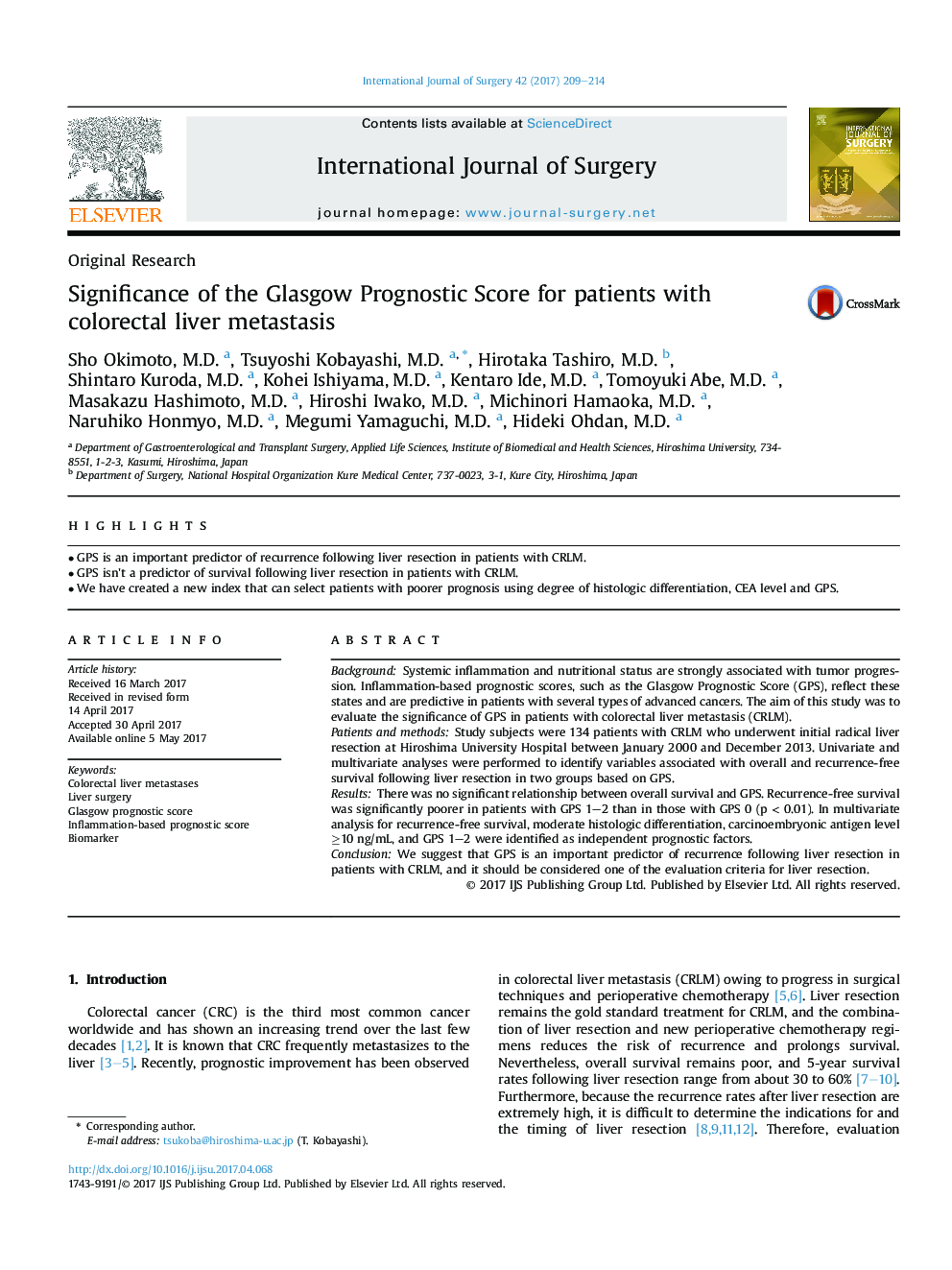| Article ID | Journal | Published Year | Pages | File Type |
|---|---|---|---|---|
| 5731752 | International Journal of Surgery | 2017 | 6 Pages |
â¢GPS is an important predictor of recurrence following liver resection in patients with CRLM.â¢GPS isn't a predictor of survival following liver resection in patients with CRLM.â¢We have created a new index that can select patients with poorer prognosis using degree of histologic differentiation, CEA level and GPS.
BackgroundSystemic inflammation and nutritional status are strongly associated with tumor progression. Inflammation-based prognostic scores, such as the Glasgow Prognostic Score (GPS), reflect these states and are predictive in patients with several types of advanced cancers. The aim of this study was to evaluate the significance of GPS in patients with colorectal liver metastasis (CRLM).Patients and methodsStudy subjects were 134 patients with CRLM who underwent initial radical liver resection at Hiroshima University Hospital between January 2000 and December 2013. Univariate and multivariate analyses were performed to identify variables associated with overall and recurrence-free survival following liver resection in two groups based on GPS.ResultsThere was no significant relationship between overall survival and GPS. Recurrence-free survival was significantly poorer in patients with GPS 1-2 than in those with GPS 0 (p < 0.01). In multivariate analysis for recurrence-free survival, moderate histologic differentiation, carcinoembryonic antigen level â¥10 ng/mL, and GPS 1-2 were identified as independent prognostic factors.ConclusionWe suggest that GPS is an important predictor of recurrence following liver resection in patients with CRLM, and it should be considered one of the evaluation criteria for liver resection.
